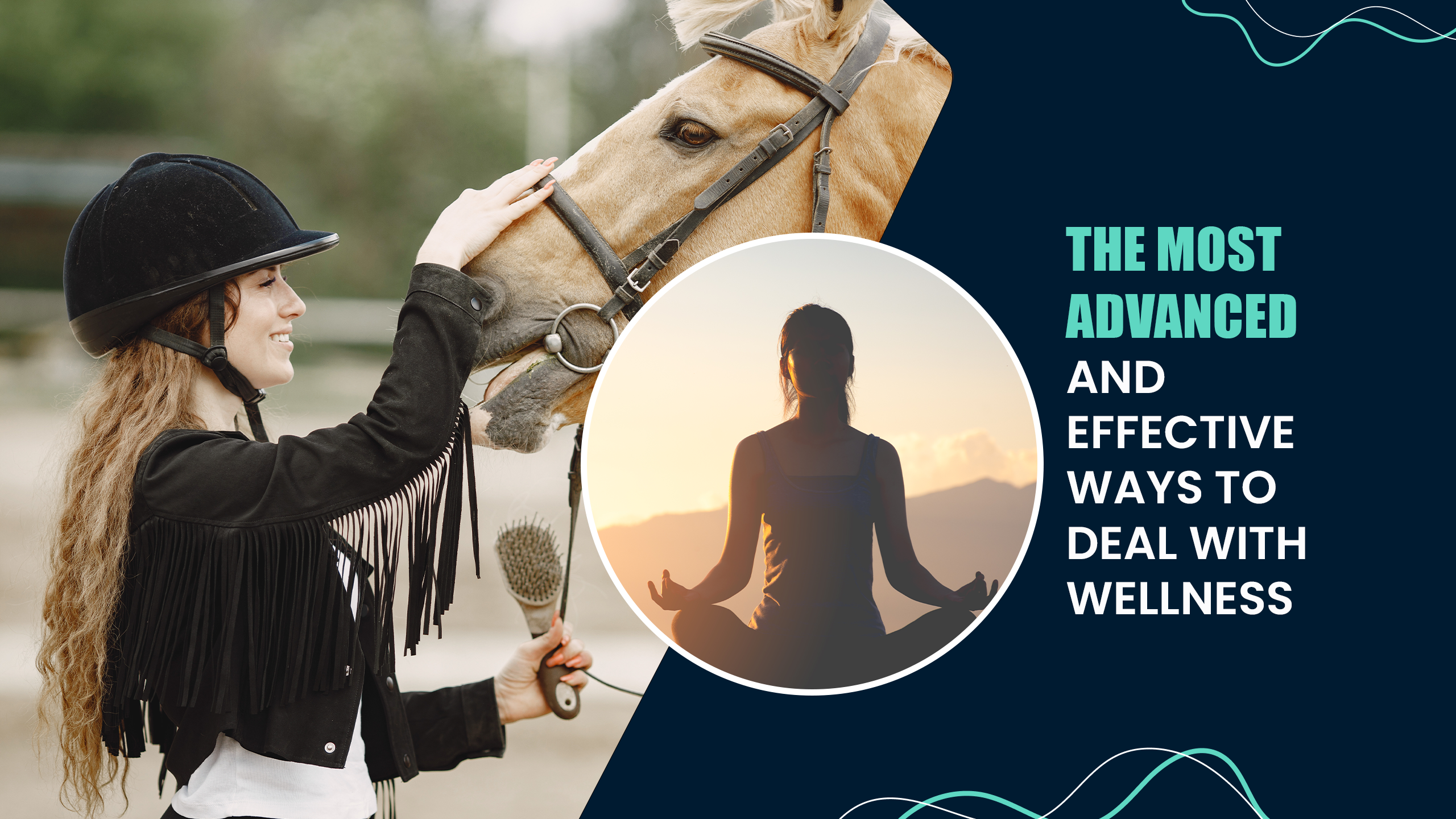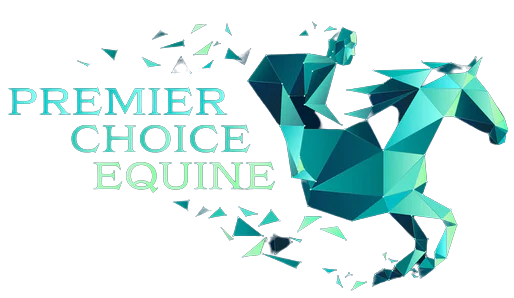
Every horse rider should be looking after their own wellbeing if they want to create a strong bond with their horse. The horse‒rider bond is central and a must if you crave a good riding performance, so it’s important that you address the specific challenges around wellness for horse riders.
This blog unveils the most advanced and effective solutions tailored explicitly for horse riders. From managing chronic pain and addressing anxiety to enhancing mental clarity and ensuring a resilient physical state, discover groundbreaking techniques that go beyond the ordinary. Join us as we delve into a world of wellbeing for riders, ensuring not just a healthier self but also a stronger connection with your horse.
Wellness Challenges Faced by Horse Riders
As a horse rider, you might face a variety of wellness issues, both physical and mental, due to the nature of your activity. Here are some common wellness issues that you might encounter:
- Musculoskeletal Strain: Riding requires the use of various muscle groups, and riders may experience strain or muscle soreness in the back, thighs, and core.
- Posture Problems: Maintaining the correct riding posture is essential, but poor posture can lead to issues such as back pain, stiffness, and misalignment of the spine.
- Joint Pain: Riding involves repetitive motions and impact on joints, which can lead to joint pain, especially in the hips, knees, and ankles.
- Injuries from Falls: Falling off a horse is a risk inherent in riding, and injuries can range from minor bruises to more severe fractures or concussions.
- Impact on Pelvic Health: Female riders may experience issues related to pelvic health due to the repetitive motion of riding, including problems such as pelvic floor dysfunction.
- Dehydration and Fatigue: Riding is physically demanding, and riders may experience dehydration and fatigue, especially during long rides or in extreme weather conditions.
- Emotional Stress: Working with horses can be emotionally demanding. You may experience stress, anxiety, or fear, particularly if you are dealing with challenging or unpredictable horses.
- Equine-Related Stress: The wellbeing of the horse is closely tied to the wellbeing of the rider. Issues such as difficulty in communication, training challenges, or dealing with an anxious or unruly horse can affect your mental health.
- Time Commitment and Lifestyle Challenges: Caring for horses and participating in equestrian activities can be time consuming. Balancing riding with other responsibilities may lead to stress and lifestyle challenges.
To mitigate these issues, equine riders should focus on proper training, regular exercise to build strength and flexibility, good posture, using appropriate safety gear, staying hydrated, and being mindful of the mental and emotional aspects of horse riding. Regular check-ups with healthcare professionals, such as physiotherapists, can also help address and prevent potential wellness issues.
Holistic Approaches to Enhance Equestrian Wellness
Resolving wellness issues for horse riders involves a combination of preventive measures, lifestyle adjustments, and targeted interventions. Here are some suggestions to address the mentioned issues:
- Proper Training and Technique:
- Seek guidance from experienced trainers to ensure proper riding techniques.
- Take lessons to improve riding skills and learn how to maintain a balanced and correct posture.
- Strength and Flexibility Exercises:
- Engage in regular exercises that focus on strengthening your stomach, thigh and back muscles to better support the body during riding.
- Incorporate stretching routines to enhance flexibility.
- Joint Health:
- Include joint-friendly activities in your fitness routine to promote overall joint health.
- Consider supplements that support joint health, under the guidance of a healthcare professional.
- Safety Gear and Equipment:
- Ensure that riding gear, including helmets and boots, is well-fitted and appropriate for the type of riding activity.
- Regularly inspect and maintain equipment to prevent issues.
- Fall Prevention:
- Practice emergency dismounts and falling techniques in a controlled environment.
- Be aware of surroundings and potential hazards during rides.
- Pelvic Health:
- Incorporate exercises that specifically target pelvic floor muscles.
- Take breaks during long rides to alleviate pressure on the pelvic area.
- Emotional Wellbeing:
- Establish a positive relationship with your horse through consistent and patient training methods.
- Seek support from fellow riders, trainers, or mental health professionals if emotional stress becomes overwhelming.
- Hydration and Nutrition:
- Stay hydrated before, during, and after rides.
- Keep a balanced diet to promote general health and increase energy levels.
- Regular Health Check-ups:
- Schedule regular check-ups with healthcare professionals, including physiotherapists, to address any emerging issues promptly.
- Time Management:
- Develop a realistic schedule that allows for both riding and other responsibilities.
- Prioritize self-care and set aside time for rest and relaxation.
It's important for riders to listen to their bodies and seek professional advice when needed. Regular self-assessment, combined with proactive measures, can contribute to a more enjoyable and sustainable riding experience.
The Risks of Not Prioritizing Wellness
Increased Risk of Riding-Related Injuries:
- Neglecting physical wellbeing may lead to muscle imbalances and reduced core strength, increasing the likelihood of falls or injuries during rides.
- Failure to address riding-related strain can result in chronic issues such as back pain or joint problems.
Impact on Mental Health:
- Ignoring mental wellbeing may contribute to heightened stress levels, negatively affecting your ability to focus and make quick, sound decisions during rides.
- Overlooking the psychological aspects of riding can lead to anxiety or fear, diminishing the joy and confidence associated with horse riding.
Diminished Riding Performance:
- Physical and mental fatigue from neglecting wellness for horse riders can result in poor riding performance, affecting the overall riding experience for both you and the horse.
- Reduced stamina and endurance may limit your ability to engage in longer rides or more demanding equestrian activities.
Potential for Chronic Illnesses:
- Neglecting general health may contribute to the development of chronic illnesses such as heart disease or diabetes, impacting your ability to maintain an active equestrian lifestyle.
- Chronic conditions may require medical attention and can lead to prolonged breaks from riding.
Impact on Horse and Rider Partnership:
- Diminished rider wellbeing can affect the overall dynamic between you and the horse, potentially straining the partnership.
- Changes in your mood or physical capabilities may influence the horse's behavior and responsiveness.
Reduced Enjoyment and Quality of Life:
- Neglecting wellbeing can result in a diminished overall quality of life for you, affecting your ability to enjoy the activities you love.
- Decreased enjoyment in horse riding, a once-passionate pursuit, may lead to a disheartening disconnection from the equestrian lifestyle.
Compromised Safety:
- Ignoring physical and mental wellbeing may compromise safety during rides, increasing the risk of accidents or injuries for both you and the horse.
- Poor health can impair your ability to respond effectively to unexpected situations or challenges.
Long-Term Impact on Riding Career:
- Chronic neglect of wellbeing may lead to long-term health issues, potentially forcing you to retire from equestrian activities prematurely.
- Prolonged breaks from riding due to health issues may result in a loss of skills and confidence.
It's crucial for equine riders to recognize the potential risks associated with neglecting wellness and prioritize their health to ensure a safe, enjoyable, and enduring equestrian journey.
